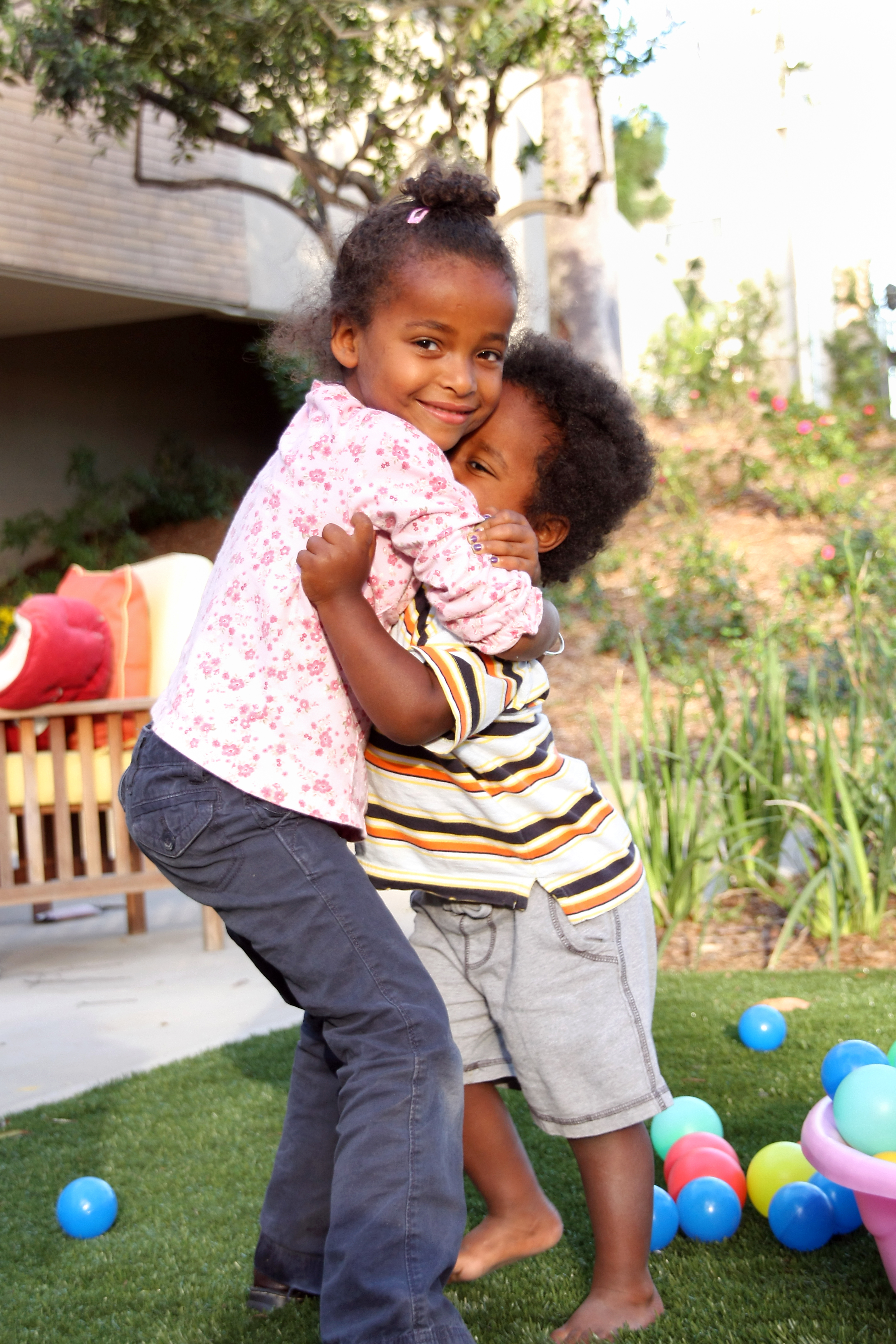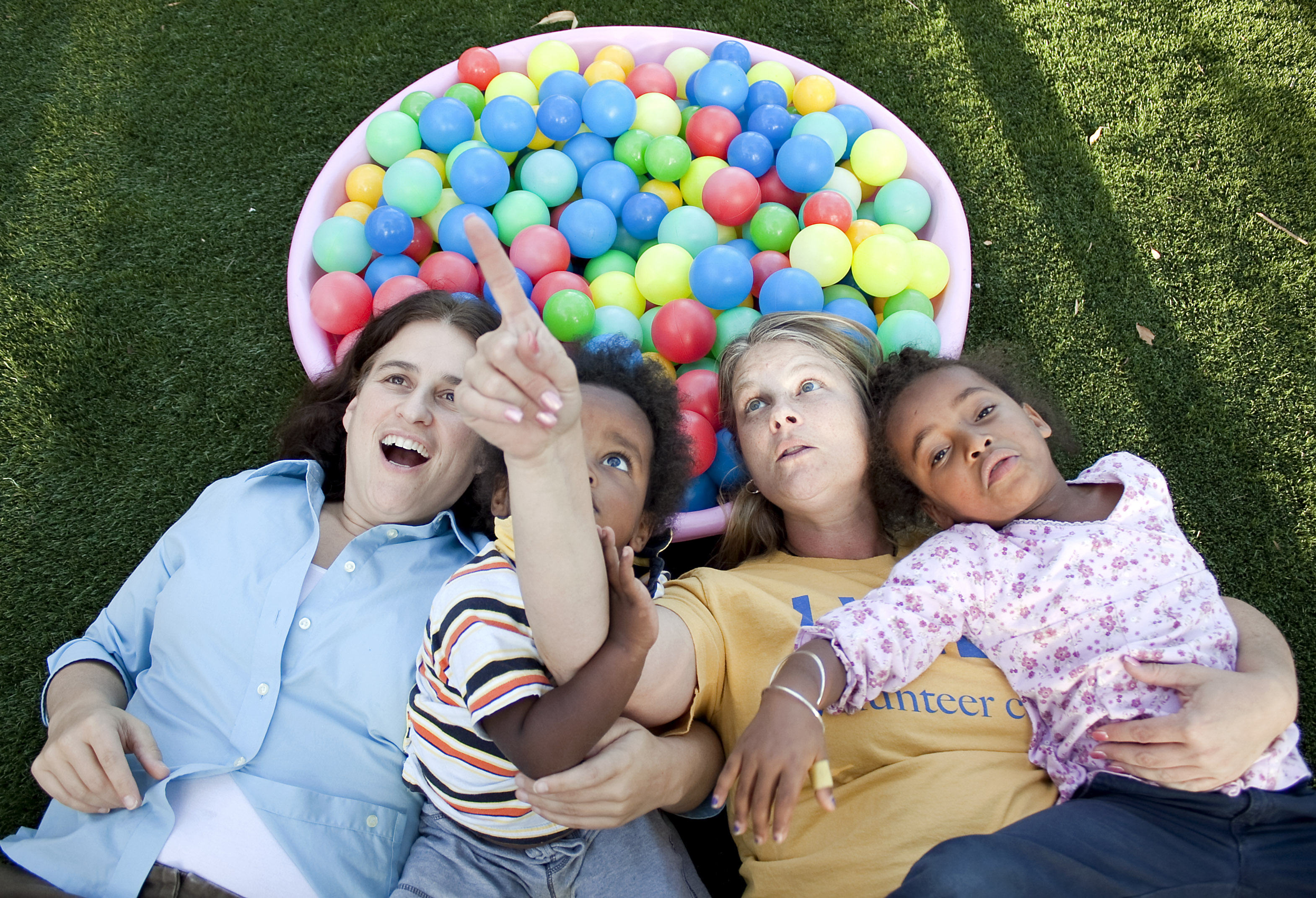
Five-year-old Tesfanesh and 2-year-old Elsae were born in Ethiopia before being put up for adoption when their family was afflicted with disease and poverty.
Correction: The original caption for this photo contained an error. Five-year old Tesfanesh Seplow was identified as two-year old Elsae Seplow.
Tesfanesh and Elsae Seplow were born in an Ethiopian village, where their family slept under the same thatched roof as cows and pigs.
The people of the village lived in mud huts, and inside were ditches to hold the livestock.
Eventually, disease and poverty forced Tesfanesh and Elsae’s family to give them up in the hope that they could find a richer life.
From the countryside, the siblings moved into an orphanage, then into an adoption agency’s communal living space.
Now Tesfanesh, 5, and Elsae, 2, live in Rieber Hall with their new family. Suzanne Seplow, executive director for the Office of Residential Life and First Year Experience, recently adopted the siblings with her partner, Robin Seplow.
“What is a family like?” Suzanne Seplow asked Tesfanesh, pulling her onto her lap.
“Sometimes they have two daddies. Or a mommy and a daddy … same color or different colors,” responded Tesfanesh, who calls her parents “mommy” and “mama.”
Suzanne and Robin Seplow first wanted to become mothers 10 years ago, and for a long time, they hoped but were never able to celebrate.
In the beginning, the couple spent three years on expensive fertility treatments. Despite going through rounds of treatments, they could not get pregnant.
“Your emotions go up and down. You’re thinking, “˜This is going to be it, this is going to be the month,'” Robin Seplow said.
She remembers her first miscarriage, sitting in the waiting room of the doctor’s office and getting cramps in her abdomen. When she and Suzanne Seplow went in for the ultrasound, they saw the baby’s heartbeat die out.
When the grief and disappointment became too much to bear, they decided to try the L.A. County foster care system. They planned to be foster parents for a year and then try for adoption.
The couple child-proofed their apartment, bought a bunk bed and waited for the call saying they had been matched with a child.
But the call never came.
Disenchanted with the system, Robin and Suzanne Seplow finally turned to international adoption. They chose Ethiopia because they fell in love with the country’s people.
“Every person we meet from Ethiopia is gracious and loving and welcoming,” Suzanne Seplow said. “People comment to us what a great thing we’re doing, but we really feel like we’re the ones that are blessed. We gained as much as we were potentially giving.”
The two-year adoption process ended in February, when the couple traveled to the adoption agency’s community living space in Addis Ababa and met their children for the first time.
“(Tesfanesh) came running to us and gave us big hugs. She was calling us “˜mommy.’ That’s about all the English she knew,” Suzanne Seplow said.
At the time, Elsae was a fragile child. He was likely born 10 weeks premature, had gone hungry on many occasions and had survived the measles.
During their trip, Suzanne and Robin Seplow also made an eight-hour drive to the countryside to visit the family of their new children. A translator read a letter they had written that described the home and opportunities that were waiting in Los Angeles.
“The family was very curious about what was going to happen, if we would let them come back and visit,” Robin Seplow said. “With a lot of Ethiopian adoptions, it’s not unusual for families to go back and visit their children’s family throughout their life. … We definitely have a strong commitment to go back and make sure the kids remain connected.”
On the plane ride back from Ethiopia, Tesfanesh sat beside a man from Kenya. During the flight, the attendants started serving food and gave the children their meals first. When Tesfanesh saw that she had food but her neighbor did not, a horrified look appeared on her face.
“(Tesfanesh) picked up her tray and went to pass it to him,” Robin Seplow said. “In Ethiopia, it doesn’t matter if you can barely feed your family. You always serve your guest first.”
Robin and Suzanne Seplow plan to keep their children’s Ethiopian roots intact. A friend who owns an Ethiopian restaurant supplied them with the country’s food, such as injera, a type of bread. The family also celebrated the Ethiopian New Year.
But it can be difficult raising children from another culture, Robin Seplow said. At first, Tesfanesh didn’t understand how dangerous cars are, or that glass will shatter if dropped ““ both were totally foreign.
“For many, many nights we cried ourselves to sleep,” Robin Seplow said. “The first week was probably the most difficult we’ve had in almost 20 years together. We had two children, we were sleep deprived, and we’re 45-year-olds.”
Since then, they’ve learned more about parenting and about Ethiopian culture. They’ve learned how to care for their children’s hair and skin, which is different from theirs. They’ve learned about each other and re-fallen in love.
In the backyard patio of their apartment, the two parents alternately scold and kiss their children, and they are all at home.
